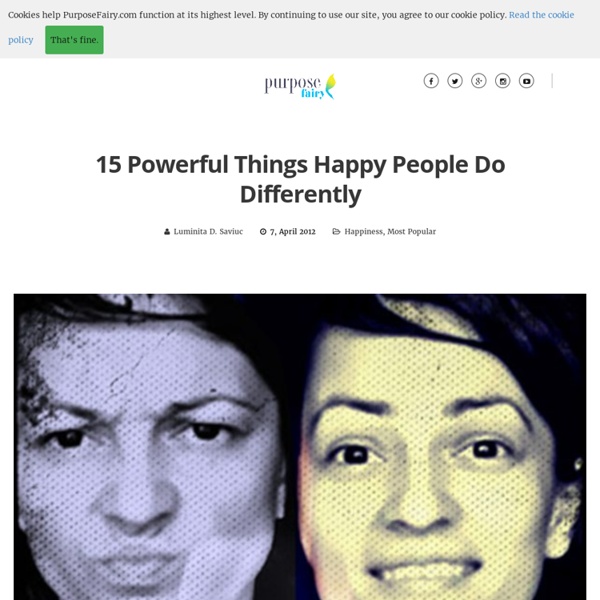" 11 Simple Ways to Create Genuine Connections with the People Who Make Failure Impossible
‘You are the average of the five people you spend the most time with.’ ~Jim Rohn Editor’s Note: This is a guest post from Scott Dinsmore of Live Your Legend. There’s probably one thing we can agree on: The people around you dictate your success.
the quiet place
communication with the quiet place will be operated via the [spacebar] keycommunication with the quiet place will be operated via your fingergently squeeze that key, nowgently touch the screen, now in order to get the most out of your experience please silence your phone, turn on your speakers and press the [f-11] key or [cmd+shift+f] on macin order to get the most out of your experience turn up the volume and rotate landscapeagain, press [spacebar] to continueagain, tap to continue seriously though, silence your phone. it's pointless otherwisedon't worry - this is *not* one of those places that scare the crap out of youdon't worry - this is *not* one of those places that scare the crap out of you welcome to the quiet placeagain, press [spacebar] to continue in the quiet place, there are no capsletters that are all big and yell at you
The Limits of Intelligence
Santiago Ramón y Cajal, the Spanish Nobel-winning biologist who mapped the neural anatomy of insects in the decades before World War I, likened the minute circuitry of their vision-processing neurons to an exquisite pocket watch. He likened that of mammals, by comparison, to a hollow-chested grandfather clock. Indeed, it is humbling to think that a honeybee, with its milligram-size brain, can perform tasks such as navigating mazes and landscapes on a par with mammals. A honeybee may be limited by having comparatively few neurons, but it surely seems to squeeze everything it can out of them. At the other extreme, an elephant, with its five-million-fold larger brain, suffers the inefficiencies of a sprawling Mesopotamian empire.
The Art of Non-Conformity
Challenging Authority Since 1978 I am a writer, traveler, and entrepreneur with the goal of visiting every country in the world while connecting with other world-changers. Continue reading about Chris Mission Accomplished!
Bullish Life: When Men Get Too Emotional To Have A Rational Argument
Jennifer Dziura writes life coaching advice weekly here on TheGloss, and career coaching advice Fridays on TheGrindstone. On the night of the election, I was alone in my apartment, refreshing CNN.com. The electoral tally went above 270.
The Learning Brain Gets Bigger
With age and enough experience, we all become connoisseurs of a sort. After years of hearing a favorite song, you might notice a subtle effect that’s lost on greener ears. Perhaps you’re a keen judge of character after a long stint working in sales. Or maybe you’re one of the supremely practiced few who tastes his money’s worth in a wine.
10 Tips to Let Go of the Past & Embrace the Future
"Two monks were on a pilgrimage. One day, they came to a deep river. At the edge of the river, a young woman sat weeping because she was afraid to cross the river without help.
Berne Convention for the Protection of Literary and Artistic Works
of September 9, 1886, completed at PARIS on May 4, 1896, revised at BERLIN on November 13, 1908, completed at BERNE on March 20, 1914, revised at ROME on June 2, 1928, at BRUSSELS on June 26, 1948, at STOCKHOLM on July 14, 1967, and at PARIS on July 24, 1971, and amended on September 28, 1979 The countries of the Union, being equally animated by the desire to protect, in as effective and uniform a manner as possible, the rights of authors in their literary and artistic works, Recognizing the importance of the work of the Revision Conference held at Stockholm in 1967,
The Benefits of Daydreaming
A new study suggests that a daydreaming is an indicator of a well-equipped brain Does your mind wander? During a class or meeting, do you find yourself staring out the window and thinking about what you’ll do tomorrow or next week? As a child, were you constantly reminded by teachers to stop daydreaming?
Top 40 Useful Sites To Learn New Skills
The web is a powerful resource that can easily help you learn new skills. You just have to know where to look. Sure, you can use Google, Yahoo, or Bing to search for sites where you can learn new skills , but I figured I’d save you some time.
Invalidation
Excerpts from an article by Cathy Palmer-Scruggs (Full article) Recently, I had a few situations to come up that called for some comfort from my friends. I really needed them.
How People are Fooled by Evidence
Rationality is the crowning achievement of our species. The ability to use evidence is true the cornerstone of science, medicine, and our legal system. We use rational methods, too, in daily life – we assess an applicant’s resume, a child’s IQ, or the mileage of a used car to predict the likelihood of good performance later on. Given that we often use information to make decisions both large and small, how good are we at assessing evidence?



